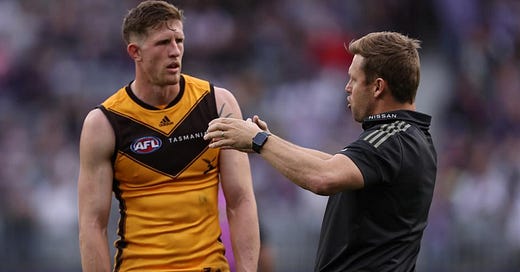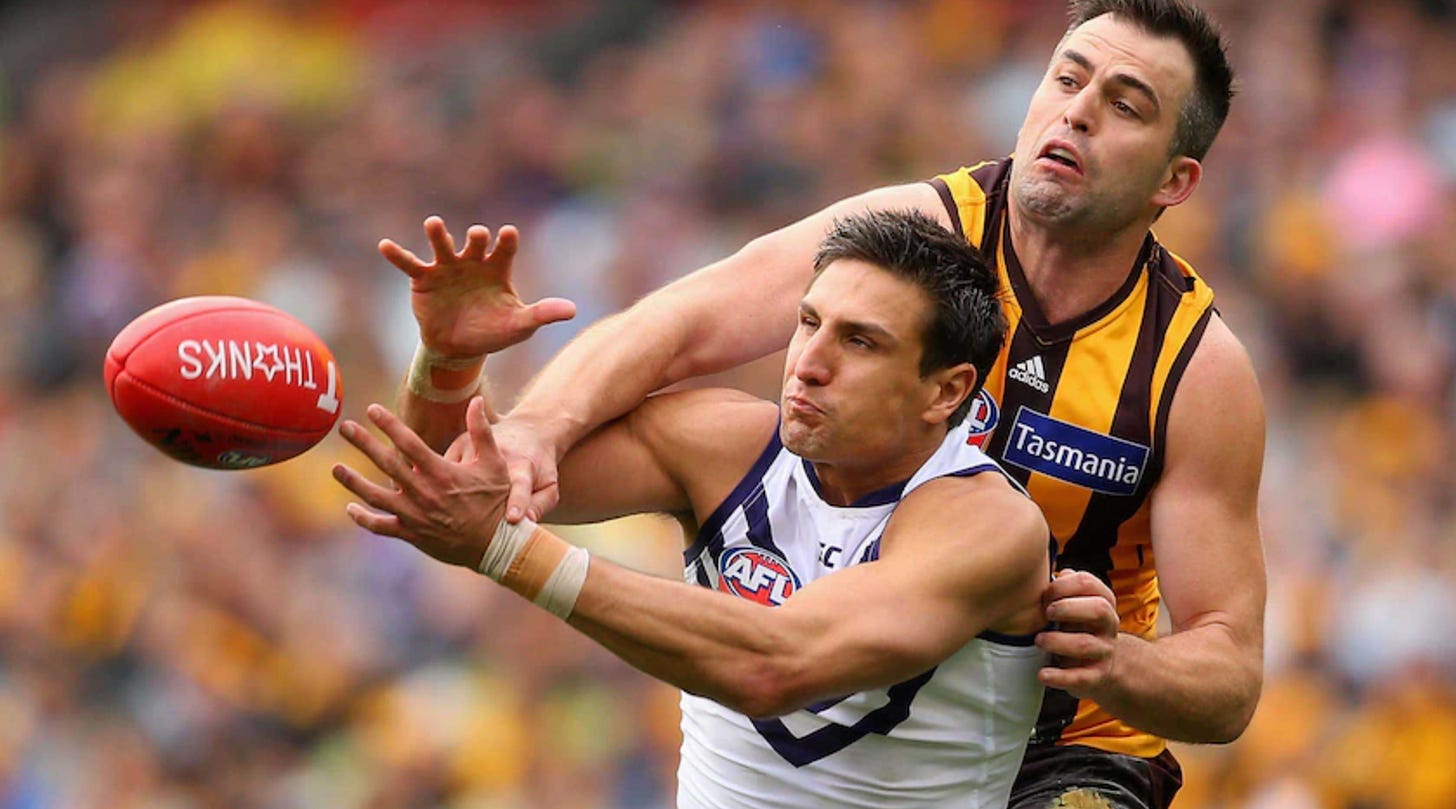Wanted: Key Defender
Should we be going after a big man in during free agency and trade period windows? Enjoy the deep dive which delivers some Frosty results!
Subscribe to Hawks Insiders for all the news through Hawthorn-tinted glasses and more exclusive content.
It’s no secret we’re after a key defender, and with good reason. Beyond Sam Frost (who is 30) and James Blanck, our key defensive stocks are a little light on.
It explains why, when big backmen Esava Ratugolea and Ben McKay (officially) came on the market after Round 24, we showed interest in both.
This got Hawks fans talking in a big way: Are they good enough? How can we know? Would we be over-paying?
This article seeks to answer the first question by leveraging the second (the second answer, for all its shortcomings, is data). I am not going to explore salary, because the reality is we’re probably going to overpay for a free agent, and that probably doesn’t matter because we have cap room.
I’ve run the numbers to see where the two defenders sit in the grand scheme, and if it would be worth breaking the bank for them. Ratugolea has chosen Port, so the exercise is academic in one sense. But it’s important to have an idea of what defender we need and want before we go shopping.
Below is a chart of defenders who faced at least one Contested Defensive One-On-One (CDOOO) per game in 2023, also ranked by spoils per game.
Champion Data defines a One-On-One Contest’ as:
“a 50-50 contest that occurs after a kick, and involves only two players – a target player and a defender. Each player must have a reasonable chance to win the ball in order for a one-on-one to be recorded.”
These contests can either be won (win the ball), lost (concede possession) or neutral (spoil or stoppage).
Players who lost 30% or more of their defensive one-on-ones in 2023 are excluded, as are several players who are not key defenders or who didn’t play many games.
A player who doesn’t lose many contests and also spoils a lot will sit in the top-right – that’s optimal. It’s no surprise to see the likes of Harris Andrews, Jacob Weitering, Sam Taylor, and Darcy Moore in that population (can’t say the same about Tylar Young, fair play to the lad).
Ratugolea and McKay sit quite literally in the middle of the road as far as their contest loss rates and spoils go. They sit alongside the likes of Jack Payne, Alex Pearce, Charlie Ballard, and other defenders you might describe as “serviceable”.
They also, crucially, sit tightly on either side of James Blanck. That is to say, as far as a key defender’s most important metric goes, they don’t markedly improve on our best lockdown defender.
Which brings us to the opposite of the optimal – players who sit in the bottom-left. Yeah, I’m talking about Frosty.
Sam Frost has a “below average” spoil rating for someone in his position (I might be less kind than Champion Data in my assessment) and his Contest Loss rate of 27% leaves a lot to be desired.
When paired with his bewildering decision-making and disposal efficiency, they are numbers that suggest he’s lucky we don’t have anyone to take his place in the 22. The data shows a McKay or Ratugolea is probably an improvement on our second defender.
Therein lies the question: when we go shopping for a defender, what are we trying to improve on? If we’re aiming to raise the level of our second key back, to minimise weak links in the backline, then by all means go for McKay.
But I contend we should be trying to improve our best defender. We need an elite key pillar to build around if our back six is going to take us forward. We’re not trying to replace Sam Frost or James Blanck; we’re trying to replace Brian Lake.
In that case, we should pass on the current offerings. If that means enduring another year of Frostball, so be it. We’ve got time.








Agree with conclusion. Should persist with Blanck, and play Jeka. He is big (1.98) and has good foot skills and will make it with persistence.
If you’re operating in a “state of desperation”, it is likely that you will make a poor decision where an emotional response overrides rational thought. We don’t need to rush in at the moment. Locking into a lengthy contract in a seller’s market is likely to lead to a poor outcome ie. buyer’s remorse.